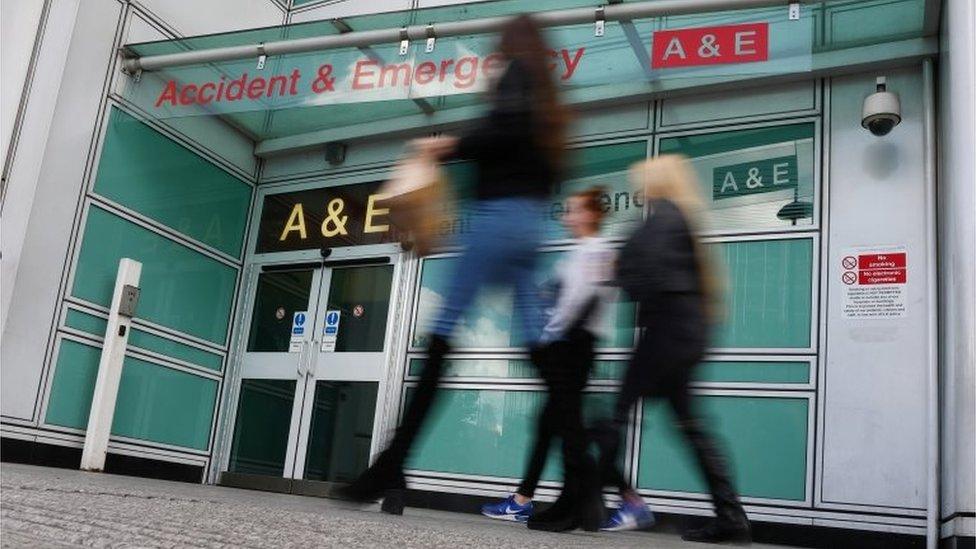General election 2019: NHS news under wraps until after polling day
- Published
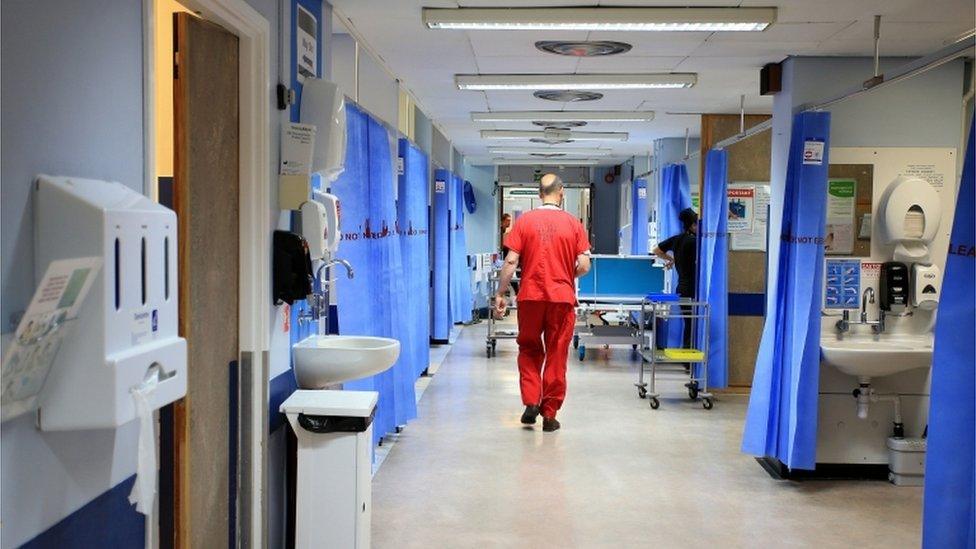
There have been calls for politicians to dial down the rhetoric in the health debate and to avoid "weaponising" the NHS.
The subject has been prominent in the election campaign and there is a widespread interest in understanding what is actually happening across the health service.
Political claims, counter-claims and rows over statistics don't always help that understanding. Some voters might feel they would like to hear from clinicians and other frontline staff.
But that won't be possible until after polling day because of a Cabinet Office policy known as "purdah"
What is purdah?
It prevents civil servants from making any form of statement during general election campaigns which might be construed as political or likely to influence public debate.
The principle is to ensure that their impartiality is not called into question.
As usual, that applies to the health service. NHS England put out guidance, external to local health leaders in early November.
It includes a reminder that "democratic debate between candidates and parties should not be overshadowed by public controversy originating from NHS bodies themselves".
Because health is a devolved issue and there are no elections for the Scottish Parliament and Welsh Assembly, there are no purdah rules affecting the NHS there. Northern Ireland follows similar guidelines to England.
The purdah policy has led to certain policy papers and publications being delayed till after the election.
This includes an annual review of maternity care by independent experts for NHS England (known as the MBRRACE report).
The charity Birthrights said the report was vitally important to learn lessons on preventing future maternal deaths.
But Prof Stephen Powis, NHS medical director, said: "Actually, the findings of this report were presented to clinicians earlier this month to ensure that any lessons are learned. Rules on NHS political impartiality are unchanged and have always applied to all public bodies at election time."
Targets missed
Purdah has in practice meant that, with only a tiny number of exceptions, no health leader or member of clinical staff in England has given any interview or made any public comment since the start of the campaign.
That might not seem unreasonable, but when the latest performance figures (covering September and October) were published by NHS England in mid-November, the absence of health service reaction was painfully obvious.
Performance across the key targets, which were missed yet again, was the worst since modern records began.
Politicians used the air time to trade blows on what or who was to blame but there was no analysis from staff and management in the NHS. Media access to hospitals was not possible.
NHS sources indicated that individuals were free to speak, though not on behalf of their NHS employers or trusts.
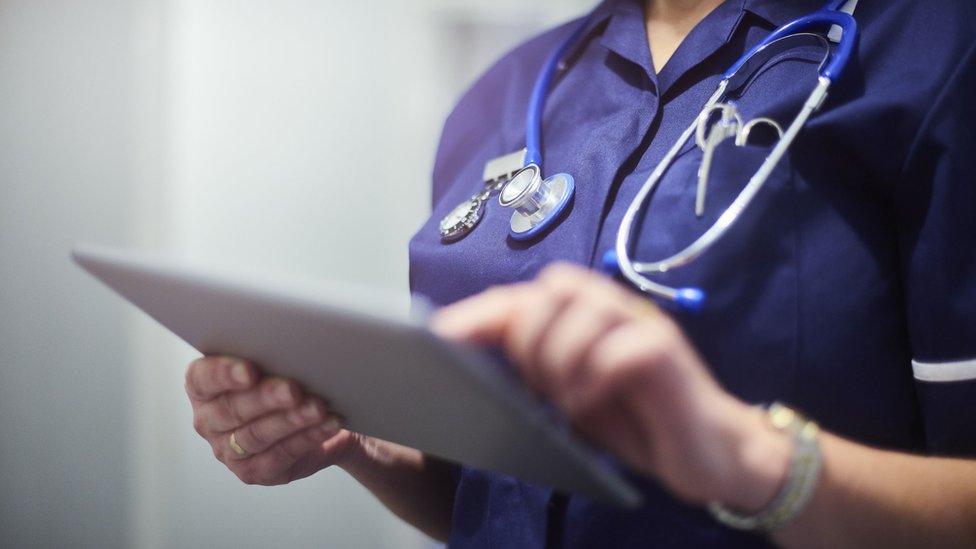
Voters in England can at least use those recent figures to scrutinise the performance of their local hospital trust against key targets for cancer care, A&E waiting times and waits for routine surgery.
But they might well want to know how, both locally and nationally, the NHS has been faring as winter has begun to set in during November.
The next opportunity would have been on Thursday 12 December, when the next set of official NHS England statistics were due.
It was also the day when the more detailed weekly winter updates were set to begin.
But 12 December is polling day - and those two data publications have now been postponed until the 13th.
Why delay?
At the time of the last general election, the guidance from the UK Statistics Authority (UKSA) was that "statistical bulletins of significant public interest" should not be published on national polling days, external.
But it was permissible for these statistics to be brought forward 24 hours or postponed till the day after polling day.
Perceiving some confusion over how this should be interpreted, the UKSA then consulted on whether the policy should be clarified and last year published new guidelines requiring a "blanket approach".
Henceforth, all official statistics pre- announced for a date which was then designated as polling day should be delayed until the next day.
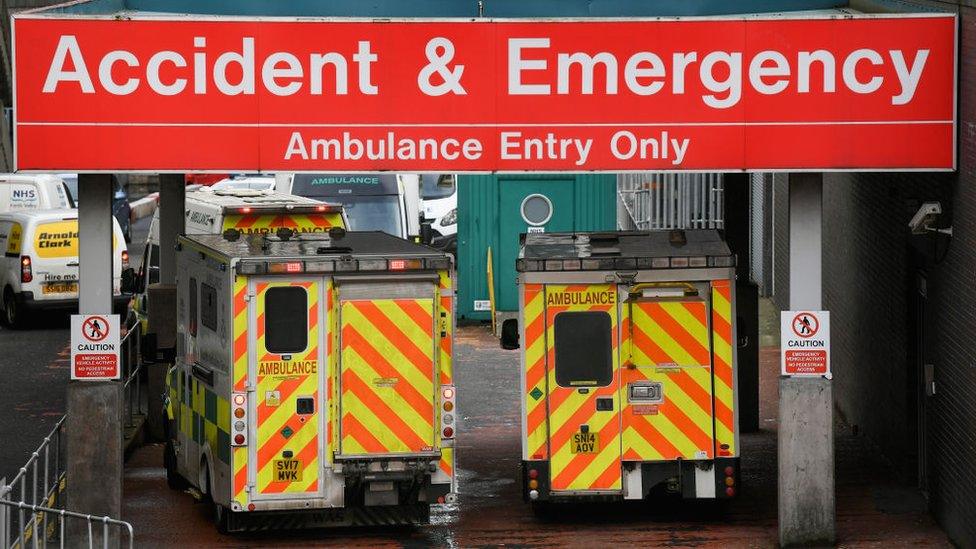
Waiting times at A&E are one of the key NHS targets
The BBC's code of practice ensuring fairness between candidates requires no campaign coverage on polling day, including subjects which have been at issue in preceding weeks and other controversial matters.
The broadcast regulator Ofcom states that there should be no "discussion and analysis of election issues", external while polling stations are open.
This would imply no coverage of NHS performance figures after a campaign when health has been a hotly debated topic.
Contentious claims
But just because the broadcasters have to steer clear of contentious issues while the UK goes to the polls, does the public have to be barred access to official statistics?
If there are updated performance figures available for the NHS at a time of great stress in the service why should voters not have the right to look at them and reach their own conclusions?
The Times newspaper has reported that more than two dozen marginal constituencies have A&E departments which are amongst the worst performing in England, external.
Perhaps the public in those seats might like to check the latest situation on December 12th rather than waiting till after the polls have closed.
The UKSA itself is not holding back because of purdah and has let it be known it will challenge contentious claims made by politicians and in manifestos. It has already intervened over statements made on education in England and youth unemployment in Scotland.
The UKSA has shown itself to be open-minded and prepared to review guidelines. Around 25 sets of official statistics have been postponed from polling day. There may be a case for revisiting the issue after this campaign.
The need to avoid controversy and political debate on polling day has to be set against the public's right to know. That is indeed a tricky balancing act.
- Published15 November 2019
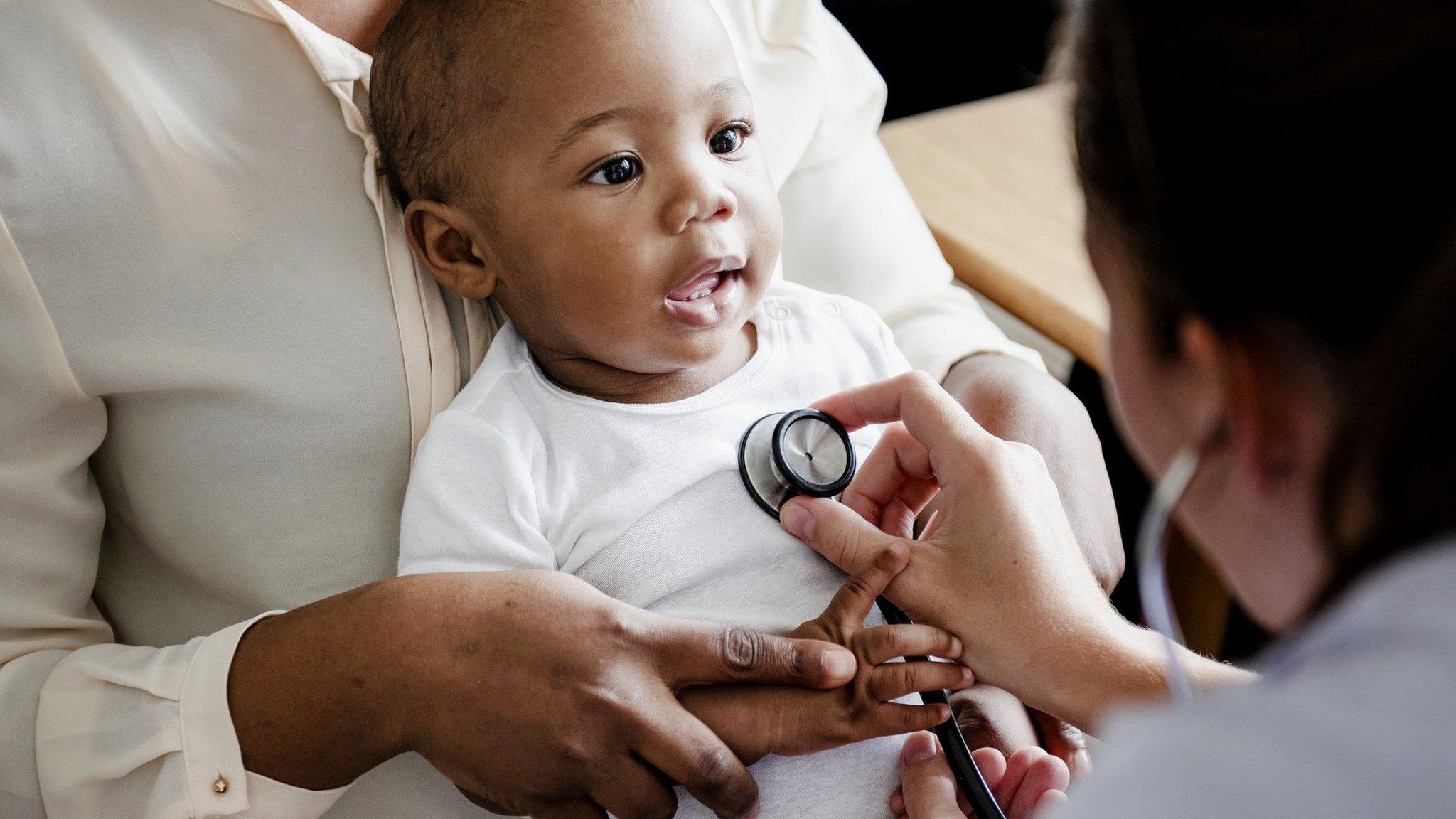
- Published25 November 2019
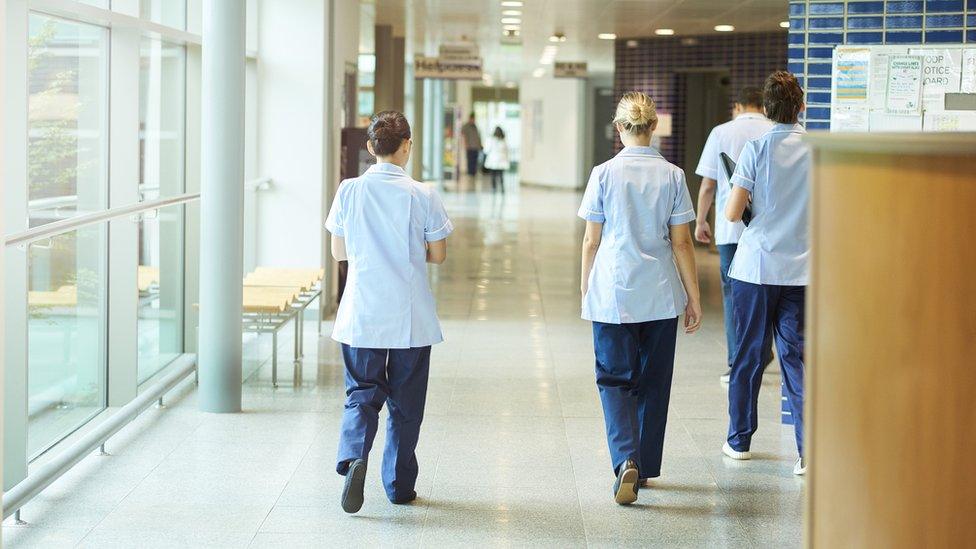
- Published4 November 2019
